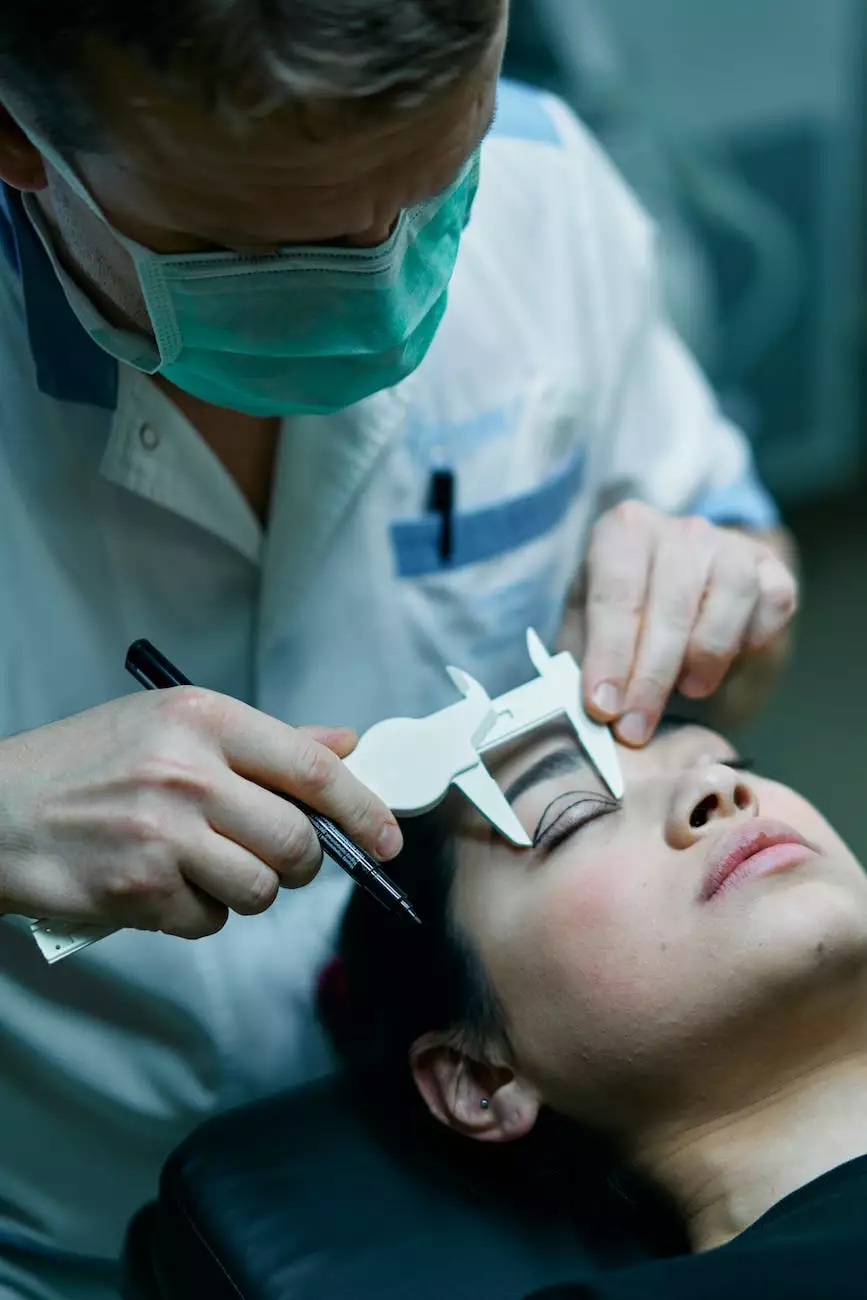Orbital/Facial Tumors - Hawthorne Clinic

Welcome to the Orbital/Facial Tumors webpage at Hawthorne Clinic, led by the renowned specialist, Dr. Arthur F. Smith.
Understanding Orbital/Facial Tumors
Orbital/facial tumors refer to the growth of abnormal cells that develop within the eye socket (orbit) or on the face. These tumors may arise from various structures such as the bones, soft tissues, blood vessels, or nerves.
At Hawthorne Clinic, we provide comprehensive evaluation, diagnosis, and treatment options for patients suffering from orbital and facial tumors. Dr. Arthur F. Smith, with his vast experience in the field, is committed to delivering the highest quality of care and personalized treatment plans to patients.
Symptoms and Diagnosis
Symptoms associated with orbital/facial tumors may vary depending on the location, size, and type of the tumor. Some common signs include:
- Swelling or lumps on the face or around the eye
- Proptosis (bulging of the eye)
- Double vision or vision changes
- Eye pain or pressure
- Restricted eye movement
- Nasal congestion or sinus issues
Diagnosing orbital/facial tumors requires a comprehensive evaluation, which may include:
- Physical examination and medical history review
- Imaging tests (MRI, CT, or ultrasound) to assess the size, location, and type of the tumor
- Biopsy for further analysis of the tumor cells
- Consultation with a multidisciplinary team of experts to develop an optimal treatment plan
Treatment Options
Once a diagnosis is made, Dr. Arthur F. Smith and the team at Hawthorne Clinic work closely with each patient to develop a tailored treatment plan. The approach depends on several factors, including the type and size of the tumor, as well as the patient's overall health and personal preferences.
Treatment options for orbital/facial tumors may include:
- Surgical removal of the tumor: In cases where the tumor is localized and removable without affecting vital structures, Dr. Smith employs advanced surgical techniques to ensure optimal outcomes.
- Radiation therapy: This treatment utilizes targeted radiation to destroy cancer cells, particularly in cases where surgery is not feasible or as a follow-up to surgery to eliminate remaining cancer cells.
- Chemotherapy: Drugs are used to kill cancer cells in patients where the tumor has spread or cannot be removed surgically.
- Immunotherapy: By stimulating the patient's immune system, this treatment assists in fighting tumor cells.
Why Choose Hawthorne Clinic?
When it comes to the specialized field of orbital/facial tumors, choosing the right healthcare provider is crucial for a successful outcome. Here are a few reasons why you should consider Hawthorne Clinic and Dr. Arthur F. Smith:
- Extensive experience: Dr. Smith is a highly experienced specialist with a deep understanding of the diagnosis and management of orbital and facial tumors.
- Comprehensive approach: Our clinic offers a multidisciplinary approach, collaborating with experts from various disciplines to provide comprehensive care.
- State-of-the-art facilities: Hawthorne Clinic is equipped with cutting-edge technology and facilities to ensure accurate diagnoses and optimal treatment outcomes.
- Personalized care: We understand that each patient is unique and requires an individualized treatment plan. Dr. Smith and our team provide personalized care and attention throughout the treatment journey.
- Continuum of care: Our commitment to providing ongoing support and follow-up care ensures patients receive the necessary care at every stage of their journey towards recovery.
Contact Hawthorne Clinic Today
If you are experiencing symptoms associated with orbital/facial tumors or seeking expert opinion and treatment, we encourage you to reach out to our dedicated team at Hawthorne Clinic. Dr. Arthur F. Smith and our team are here to provide the highest standard of care tailored to your unique needs.
Contact Hawthorne Clinic today to schedule an appointment and take the first step towards effective diagnosis and treatment.
Disclaimer: The information provided here is for educational purposes only and should not be used as a substitute for professional medical advice. Consultation with a qualified healthcare provider is essential for accurate diagnosis and appropriate treatment.




